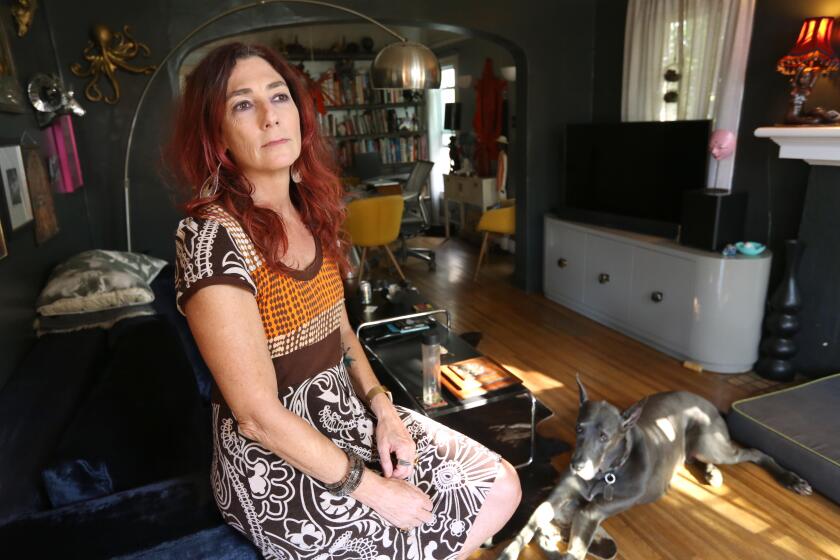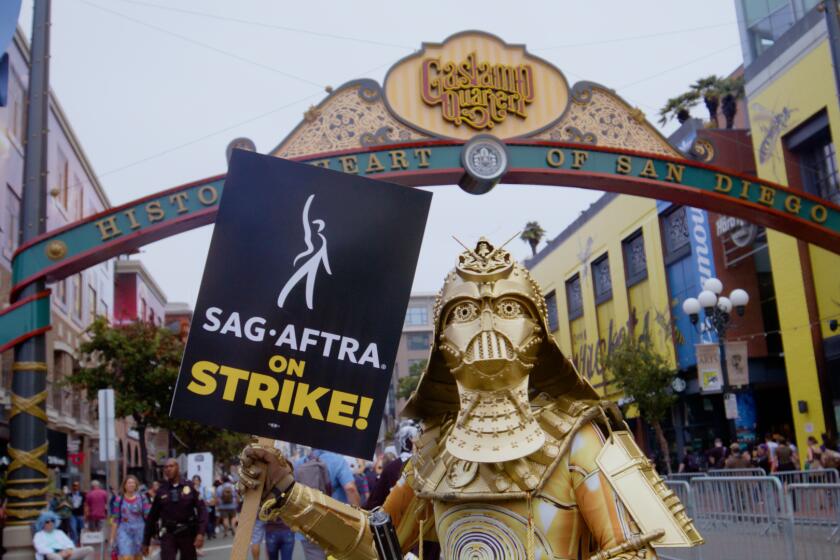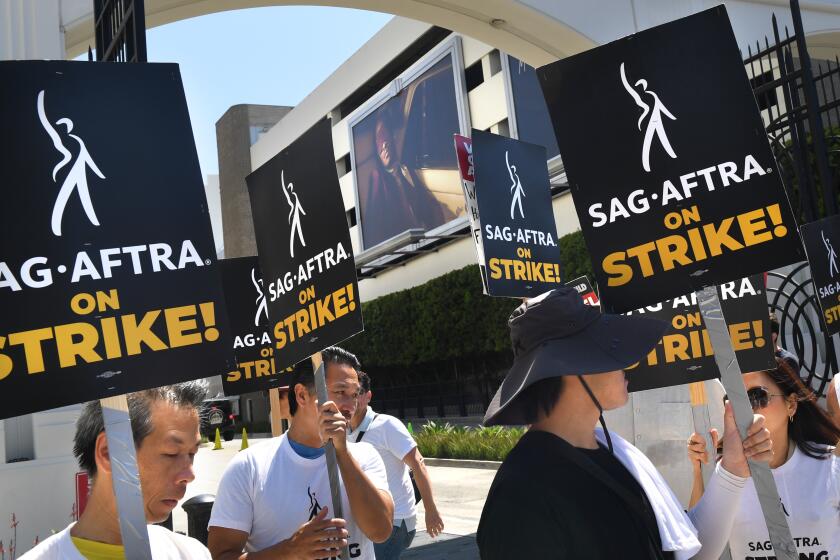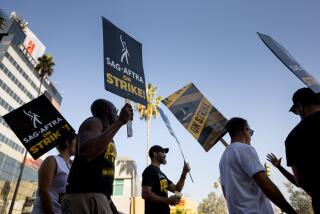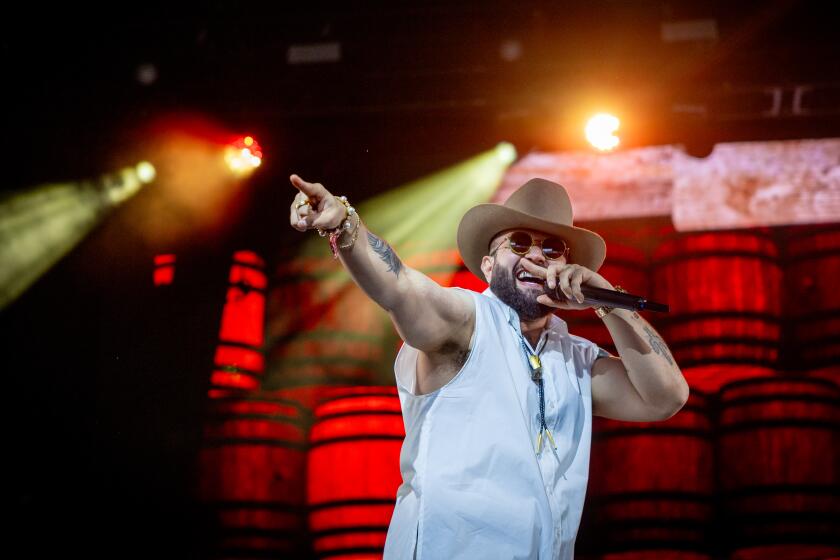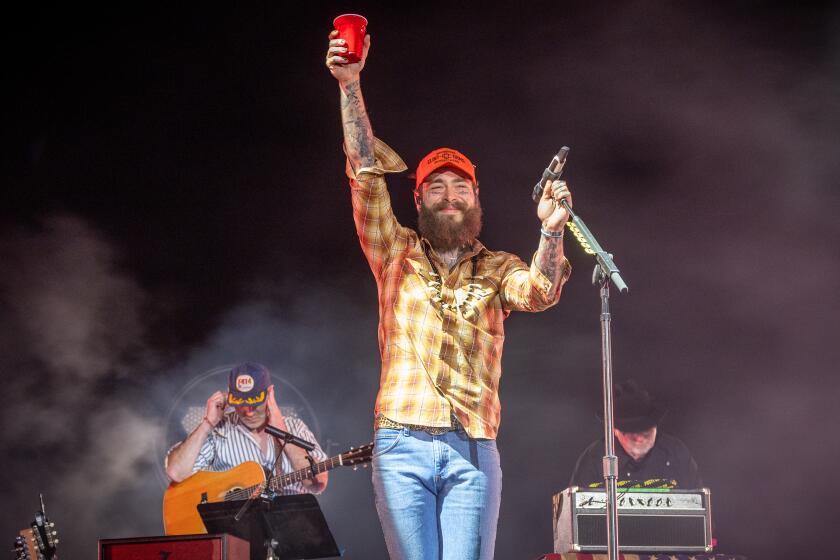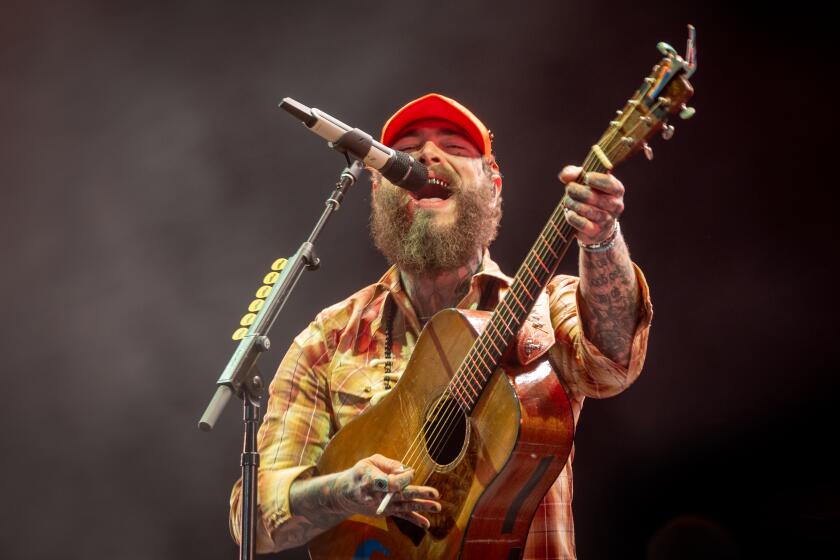If Hollywood gets worse for workers, it will get worse for disabled workers first
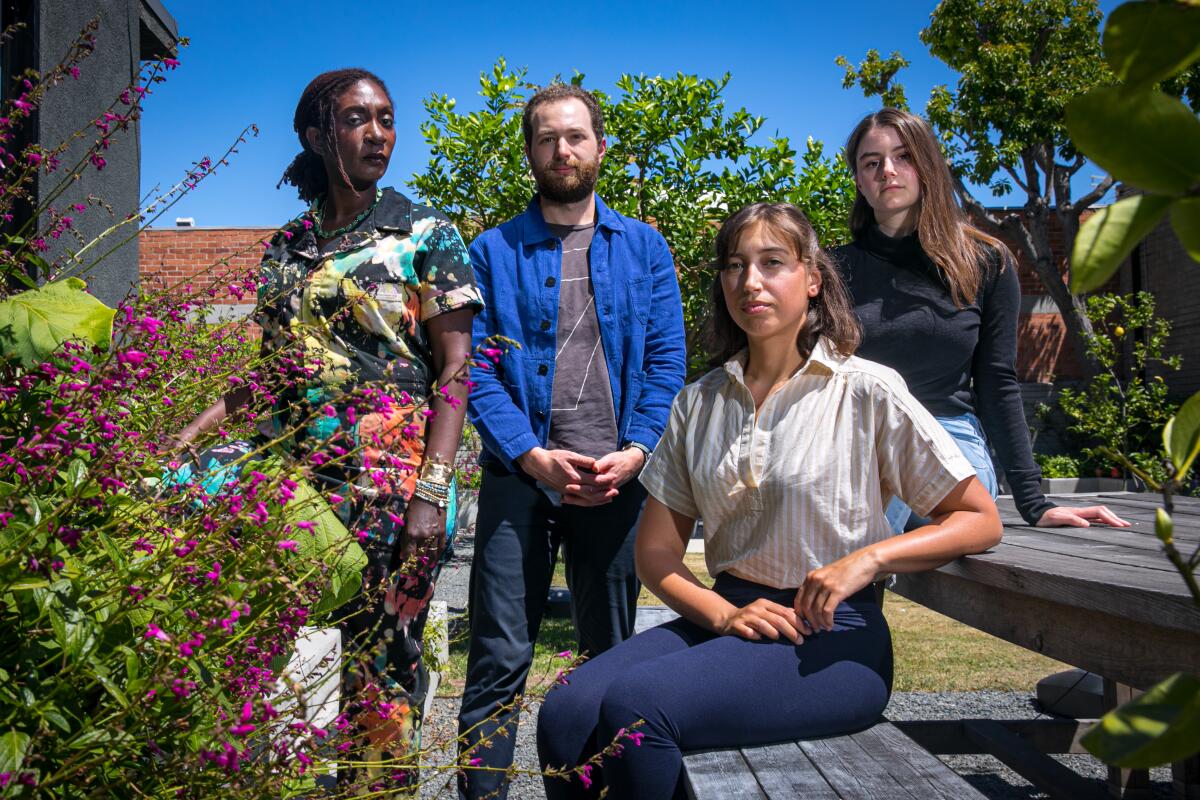
Keisha Zollar is no stranger to the picket line. She’d been on strike with the WGA for weeks before her second guild, SAG-AFTRA, joined the writers.
“I’m [on] double strike,” Zollar tells The Times. “How do I feel? How many expletives can I say? It’s simmering frustration at the minimization of the value of my work.”
But for Zollar, the strikes are not just difficult because she cannot work. Picketing is also hard on her body. The “Astronomy Club” co-creator has had a chronic illness since she was 12, and when WGA went on strike in May, she picketed so often she ended up having a flare.
“When I have a flare, it’s joint pain, I get eye problems, a whole host of things,” says Zollar. “Standing hurts.” Access to a clean, safe bathroom is crucial; in the past, Zollar ended up hospitalized after getting a life-threatening infection from lack of access. “It’s so very hard on the body and this is going to take sustained action.”
Workers in film and TV, most of whom are pro-union, have been trying to make ends meet amid a dual strike of Hollywood actors and writers.
Zollar is among a group of disabled writers who have received funding from Inevitable Foundation, a group striving to empower mid-level disabled screenwriters. Their hope is to destigmatize disability and diversify culture by focusing on the root of who tells stories in Hollywood.
“The industry feels like it’s at a unique crossroads where it can either go back to the way it was and keep perpetuating systems that exclude people, or we can have the turning point,” says Zollar.
She fears that if Hollywood relies on AI to create work, it would only flatten representation further. “The idea that you do not value human contributions and human labor is a real plague on society,” says Zollar, adding that the issue goes beyond entertainment. “There are some people who want to really reduce the power of humans, not use technology to empower humans.”
Zollar adds that the people creating the technology often aren’t a reflection of our diverse society. “We are replicating some of the same [biased] systems without that human element, the place in us where we’re able to touch empathy. So we’re not starting off from an inclusive place. That’s why we need more humans in this conversation, not fewer.”
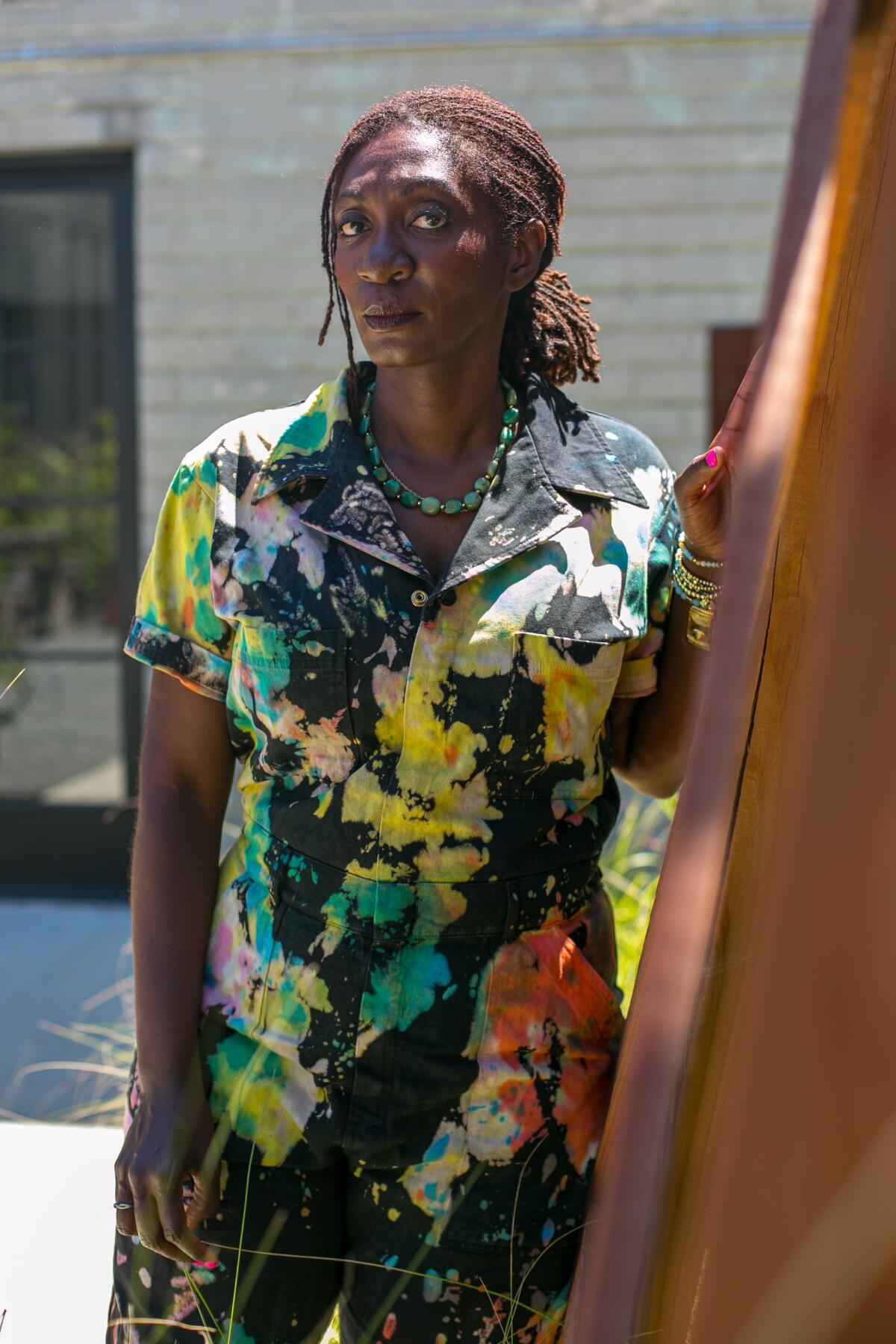
Sheridan O’Donnell is another filmmaker who received financial support from Inevitable Foundation. He is also worried about AI being exploited to minimize the role of screenwriters.
“If disability is on the caboose of the writing chain, we will be the first people to get pushed out of jobs,” he tells The Times. O’Donnell says that if screenplays are written by AI based on previously existing material, it will only further produce stories full of tropes and cliches.
“You’ll have shows with disabled characters and there won’t be a writer with that disability in the room,” says O’Donnell, who has retinitis pigmentosa, a rare eye condition that slowly results in vision loss. He also stresses that disabled workers are not a monolith: “Representation isn’t enough if it’s misrepresentation.”
“The story starts with the writers. If you’re able to create change at that starting point, it’s going to have the biggest trickle-down effect,” says Inevitable Foundation co-founder Marisa Torelli-Pedevska. Even before the strike, the group had launched an initiative to promote hiring disabled writers — not just disability consultants, who are paid less than writers and often don’t have decision-making authority. But when it was clear a strike was imminent, Inevitable Foundation shifted its focus to creating an emergency relief fund.
With writers and actors sidelined by strikes, Comic-Con 2023 still attracted throngs of fans. But observers say the disruptions of recent years have taken a toll.
“The writers that are multiply and historically marginalized, [those with disabilities] among them, are the ones that are going to hurt the most from the strike,” says co-founder Richie Siegel. In a survey conducted leading up to the strike, Inevitable Foundation found that 57% of writers surveyed said they would lose work or income if there was a strike, with a potential loss of more than $2 million in earnings. Forty-three percent said they had less than three months of savings and 67% said they had less than six months.
Pre-strike, the group received substantial funding from the studios, who, of course, were now on the other side of the table and wouldn’t be donating to a relief fund. So, Siegel said, Inevitable turned to showrunners like Julie Plec, Ashley Lyle, Edward Kitsis and Adam Horowitz for funding, plus individual donations and other foundations. The emergency relief fund disperses unrestricted cash grants to union and nonunion members who identify as disabled, including those with mental health conditions or chronic illnesses.
“It just costs more money to be disabled,” says Torelli-Pedevska. A disabled person needs to make on average $17,690 more annually than an able-bodied person to achieve the same quality of life. To that end, Inevitable Foundation has disbursed more than $750,000 in direct funding to disabled writers, podcasters and directors in its first three years. “The average person has to pay for rent and food, and disabled people have to do that, plus all of the costs for what they need. Disabled people are going to be the first to be affected in terms of their money dwindling quicker.”
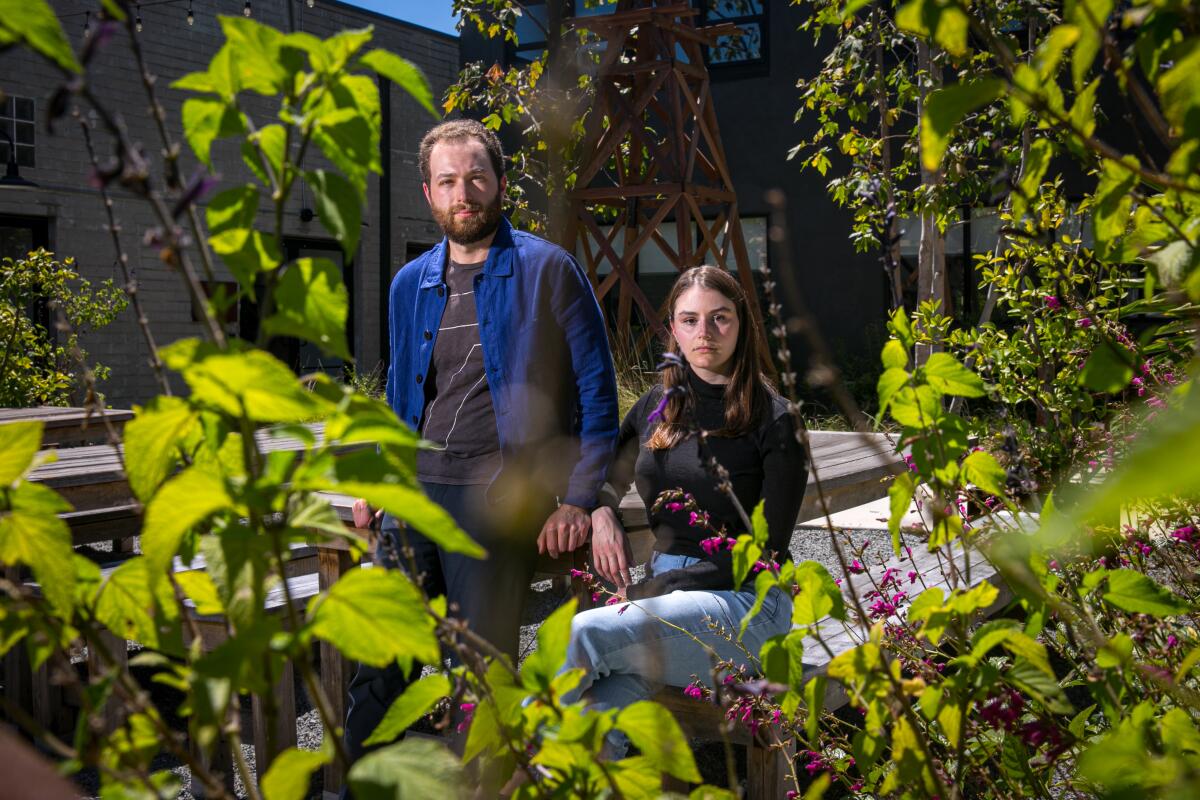
Then there’s the matter of healthcare. Monica Cecilia Lucas is a writer with disabilities who has received financial support from Inevitable Foundation in the past. She’s pro-WGA and has been picketing alongside her fellow screenwriters.
“On a typical year, you need to meet certain work requirements to get your health insurance through the guild,” says Lucas. “It’s scary and threatening for everybody, but for folks with disabilities, it becomes a question of whether you can stick around in the city for another year or whether you have to figure out a different way of keeping yourself alive.”
That’s why Lucas and fellow screenwriters with disabilities told The Times they found it particularly egregious when Deadline recently reported a studio executive saying, “The endgame is to allow things to drag on until union members start losing their apartments and losing their houses.”
With writers and actors on strike, the studios have a full-blown labor revolt on their hands — and they have no one but themselves to blame.
“It’s cruel, it’s inhumane and it speaks to this pervasive problem that we have in our society, which is profit is the ultimate good that people seek out,” says Lucas. “Whoever that executive is, is saying that they’d rather have homeless children than a little less profit for their shareholders.”
Lucas added that the infuriating comments help empower the workers on strike, as when Bob Iger told CNBC that writers and actors were not being “realistic” in their demands. Hours before Lucas’ interview with The Times, she had spent the morning picketing in front of Disney, alongside actors new to the lines and writers who’d been striking for weeks. She said picketers chatted both about Iger’s comments and the anonymous studio executive.
“It backfires,” she said. “It makes us more secure in the fact that we’re going to keep fighting.”
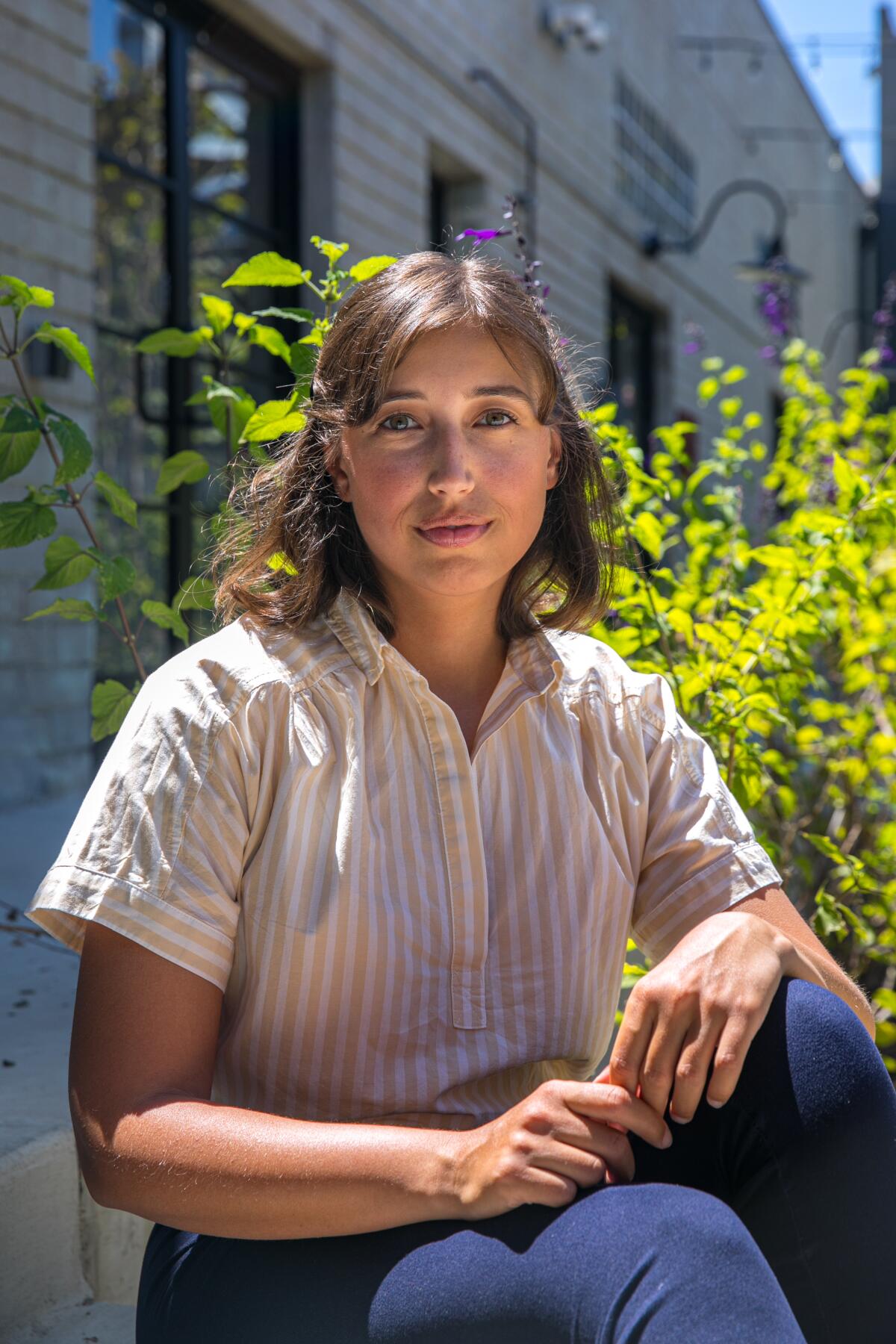
Siegel noted that when executives “say the quiet part out loud” like this, it further underlines the importance of organizations like Inevitable Foundation that are trying to keep underrepresented creatives and artists from leaving the industry: “There’s such a huge risk of loss, specifically for disabled writers, who are less than 1% of the writers working.”
And this loss has real-world implications, given how connected entertainment can be with culture and politics. “Culture can and does drive policy,” says Siegel. “But if these people can’t work and tell those stories, well, how do we change the culture? How do we change policy?”
Siegel and Torelli-Pedevska contend that industry diversity efforts themselves underserve disabled workers. (California is the only state to include disability status in diversity tax credits.) Studios may be hesitant to track disability among their workforce because of legal or medical disclosure issues. Siegel says one way to get around this is by turning it into an identity question: “Do you identify as disabled?”
For all the challenges they face, the urgent need for change means the screenwriters, who credit Inevitable Foundation with building solidarity among writers with disabilities, still see opportunity in the strike — for greater visibility and, O’Donnell hopes, for more empathy from able-bodied screenwriters and actors.
“Can you draw a line between yourself and us?” says O’Donnell. “With the strike, someone is like, ‘I don’t know if I’m going to have a job in four months.’ Well, if you’re disproportionately hired, that’s how disabled people feel all of the time.”
For her part, Zollar says she can’t help but be optimistic. “Sometimes it takes labor saying ‘no’ for the people who are in charge to actually listen. They want to make us so desperate that we’ll take nothing and we’ll decline our way into economic oppression. And I’m happy that I am involved in two unions who say, ‘No, we can’t do this anymore.’”
More to Read
The biggest entertainment stories
Get our big stories about Hollywood, film, television, music, arts, culture and more right in your inbox as soon as they publish.
You may occasionally receive promotional content from the Los Angeles Times.
